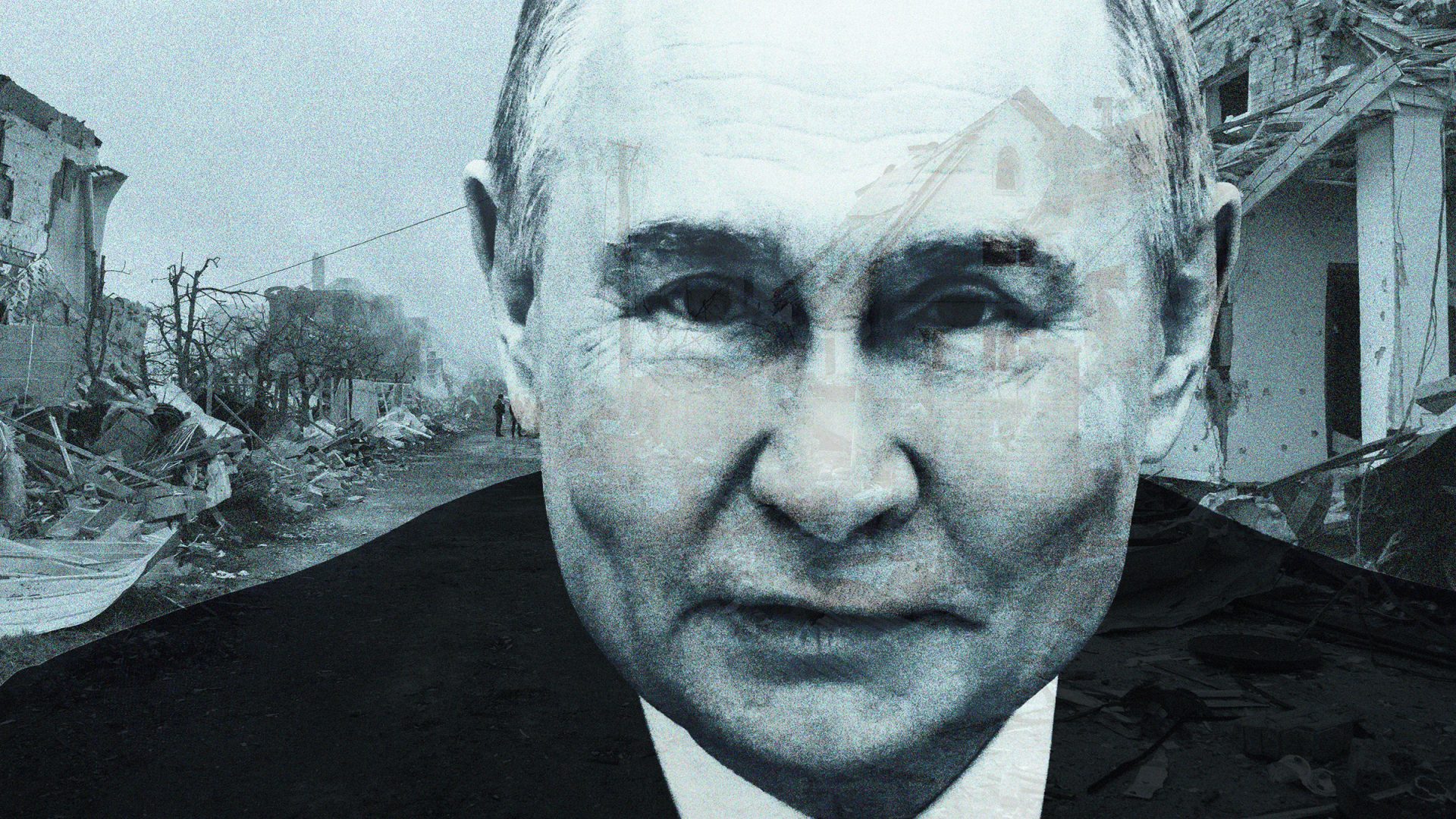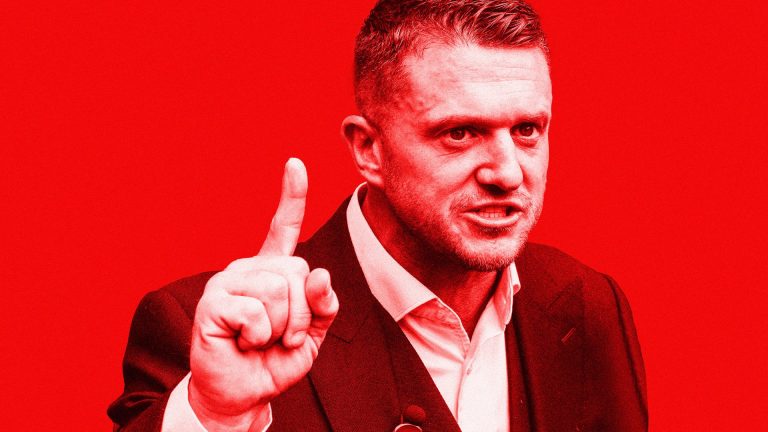The war in Ukraine is approaching what could be its most critical stage yet, as officials in Kyiv say Russia’s anticipated summer offensive has already started.
The summer months will be crucial as they may provide answers to questions that inform us exactly how close the conflict is to reaching a resolution.
Those questions include: does Russia have the resources to push further into Ukraine; how deep are Ukraine’s defensive capabilities; how much violence can Trump stomach before turning on Vladimir Putin; can Europeans put Ukraine in a strong enough position to secure long-term peace on its own terms – both for itself and the continent.
Security officials in Kyiv believe that Putin’s immediate priority is convincing the West that he’s in total control of when and how the war ends. He has recently talked of creating a “buffer zone” between the Ukrainian frontline and territory that Russia has occupied, apparently to allow the space for a ceasefire.
Of course, there is a perverse irony to Putin, who is currently ordering strikes on civilians and not bothering to attend formal ceasefire talks, claiming he wants peace with a straight face. Ukrainian officials believe his current actions are more about convincing Trump and Ukraine’s western allies that he can achieve his objectives without the need for an agreement with Ukraine – effectively going over Kyiv’s head, thereby robbing the country of a say in its own fate.
“Putin believes he can destroy Ukraine’s statehood if he’s given the time,” says a source close to President Zelensky. “The Kremlin wants to convince Trump to give it the space to force Ukraine into a position, so no need to negotiate. They want defeat to seem so inevitable that America and Europe stop sending weapons to Ukraine and instead focus on their own stockpiles.”
Current situation
When Ukraine’s officials say the summer offensive is underway, they point to the visible build-up of Russian troops in various positions across the frontline.
“At the moment, we are seeing tanks gathering in places on the frontline, looking for gaps or weak points in control zones,” says a Ukrainian security official. “We know they do not have massive resources at the moment, but if they can find these weak points, then they could make significant gains further into our territory.”
These sorts of gains, combined with the increased drone and missile strikes deeper in Ukraine, would allow the Kremlin to make the case that they are on the brink of victory, while draining it of resources, like anti-missile defences, drones, anti-tank mines and, of course, personnel.
Suggested Reading

What does real justice for Ukraine look like?
It’s no secret that the war has been difficult for Ukraine. Russia is a much larger country with greater resources in terms of people and manufacturing capacity. Among its closest allies are brutal dictatorships like China, North Korea and Iran, who have no particular qualms about selling them weapons – or in the case of North Korea, people.
While they don’t expect a Ukrainian collapse this summer by any stretch of the imagination, officials in Ukraine do believe that the summer offensive of 2025 will be harder than previous years. They are keen that Western allies know exactly how and why it might be so difficult.
“Lots of people come here and want to tell positive stories about our resilience, and that is good,” says Serhii Kuzan, Chairman of the Ukrainian Security and Cooperation Center. “But at the moment, we cannot manufacture weapons or recruit as fast as the Russians. We need people outside the country to understand how we can address this.”
What friends are for
Ukraine’s Western allies have given Kyiv a lot of money and weapons to hold off Russia. But more is needed if Ukraine is to keep Putin at bay.
To this end, Ukraine has tried to make investing in its defence industry more appealing to allies – notably in Europe, where countries are preparing to splash up to $800bn rearming themselves by 2030.
Ukraine’s defence industry capacity has grown from $1bn a year in 2022 to an expected $35bn by the end of 2025. Officials in Kyiv believe that current output is considerably lower. That means there is potential for Western countries to place orders directly with Ukrainian manufacturers, then donate the weapons made in-country to the Ukrainian forces.
As the European Union recently noted: “Direct support to Ukraine’s defence industry is the most effective and cost-efficient way to support Ukraine’s military efforts, notably through direct procurement orders from its defence industry by Member States for donation to Ukraine.”
This wouldn’t be pure charity on behalf of Europeans. There are selfish and long-term incentives for European countries to invest in the Ukrainian defence industry – something officials in Kyiv know and are eager to exploit.
The war has made the country a true front-line testing ground for cutting-edge technologies. “What might take you months, even years of developing, testing and manufacturing in the West will only take weeks here,” a Ukrainian defence official said at a closed-door meeting I attended last month in Kyiv.
“We are the best test field in the world because mistakes here mean death. We can tell you very quickly how your product does or does not work on the battlefield because we have one. We don’t mind people thinking of us as a testing ground in that sense.”
Ukraine currently cannot export weapons for obvious reasons. However, a wise European arms manufacturer might see this as an open door to get a jump start on their competitors, developing the technology Europe will desperately need at a faster pace with cheaper overheads. If those export controls are lifted and the war does come to some kind of end, those with operational factories might be well placed to hoover up a decent chunk of the $800bn European spending.
Building bridges
The other area Russia has a distinct advantage on Ukraine is in pure manpower. While exact figures are hard to come by, Russia has a massive population and a leader who isn’t shy about forcing people to fight his battles.
An example: Putin’s disregard for human life is hardly a secret, even when it comes to his own troops. The term “meat grinder” is widely used in security circles to describe Russia’s tactic of sending waves of troops to inevitable death in order to make relatively small gains. Members of Russia’s government, for reasons known only to themselves, demonstrated their lack of compassion by giving mothers of fallen soldiers actual meat grinders on International Women’s Day earlier this year.
Ukraine has suffered heavy losses throughout the war. Even with conscription and volunteers, matching Russia in the numbers game is not easy.
Officials in Kyiv know that Western troops are not going to join the battle against Russia. The best they can possibly hope for is governments like Britain and others in the Coalition of the Willing agreeing to put peacekeepers on the ground – something that would require a formal peace deal and the approval of Russia.
However, Western countries could help Ukraine address its numbers problem in other ways.
“There is appetite in lots of countries for people to come and fight in Ukraine,” says Kuzan. “If you look at South America, lots of people want to come and serve in the International Legion. Countries like Spain and Portugal who have historic and cultural ties, who speak the same languages could help build some kind of bridge and reach those people. Other European nations could build hubs where people can travel, sign up and get into Ukraine.”
The Orange One
The final and arguably most important role for Europe this summer is to keep Trump as happy as possible. Right now, he seems to be getting the message that Putin is out of his mind and more than happy to keep killing innocent civilians. He has even admitted that Putin isn’t listening to him.
The European leaders that Trump likes and listens to (yes, that’s you Sir Keir) must keep pressing the case for American funding. The most terrifying prospect for those of us who have been in Ukraine while Russia fires ballistics is what happens when certain ammunition runs out? Ukraine’s supply of air-defence missiles is dwindling and can realistically only be replenished with US approval.
Yes, Trump needs to understand what we in Europe understand: that Ukraine’s loss would be a loss for everyone who Russia considers an adversary, including the United States. But he also must be grovelled to and made to feel loved by us if that’s what it takes to keep the weapons coming. As degrading as that might feel, Europe is simply not in a position to fill the gap left by America any time soon.
The specifics of what’s happening in Ukraine can feel remote and can be hard to understand. What’s easier to understand is that Ukraine has held on against the odds for three years. This summer, we in the West must do everything in our power to ensure that those three years were not for nothing – and that Ukraine remains in a position to end this war on its own terms. For its sake and our own.









